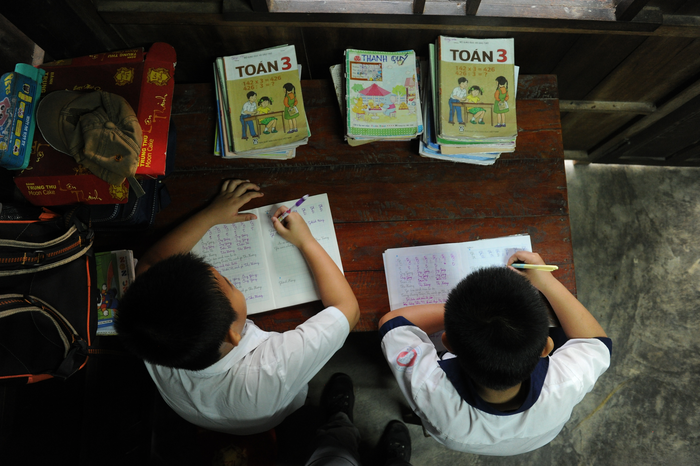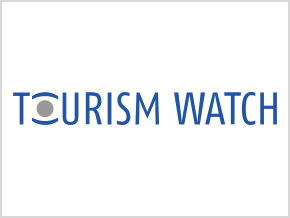The COVID-19 pandemic has increased the vulnerability of children in Vietnam. They spend more time online, which puts them at higher risk of online sexual abuse and grooming. Many have dropped out of school and seek informal employment in the tourism sector, where they are unprotected and easy to approach for sexual exploitation. As the country is re-opening up to tourists, the tourism industry has started to include child protection in their sustainability agenda.
Vietnam is one of the world’s fastest developing countries. At the same time, it has one of the highest vaccination rates, which has vaulted it to number two on the Nikkei COVID-19 Recovery Index in June 2022. This index ranks a country’s economic recovery prospects based on its ability to manage infection, death, and vaccination rates. As a result of its efforts, Vietnam re-opened its borders to tourists in May 2022 without any COVID-19 vaccination, testing, or quarantine requirements.
One of the silver linings of the COVID-19 travel shutdown in 2020 and 2021 was that it gave the Vietnamese tourism sector a chance to reset operations and practices. Before the pandemic, it was headed in an unsustainable direction. As Vietnam re-opens and jump starts its tourism industry, the industry focuses more on how to balance economic recovery with sustainability objectives. One of these objectives is child protection from sexual exploitation by travelling sex offenders.
Increased Vulnerability of Children during Lockdown
Sexual exploitation of children was an underreported issue in Vietnam prior to COVID-19. The Ministry of Public Security (MPS) reported 2,643 cases of sexual violence against children in 2017 and 2018, which is estimated to be much lower than the actual figure. The pandemic exacerbated the problem, as more people stayed at home. The prolonged lockdown increased a child’s risk of violence and/or sexual abuse at home. Children were also not in regular contact with those who would normally identify and report suspected abuse, such as teachers.
Online sexual abuse and grooming by perpetrators using chat functions in online games, apps, and social media forums was becoming more prevalent even before the pandemic. UNICEF stated that the risk increased as stricter COVID-19 measures forced children to shift to online learning. In 2020, more than 700,000 cases of online child sexual abuse images and videos were reported in Vietnam, where over 60 percent of children have access to an internet-connected device.
Around three percent of rural households surveyed in Vietnam reported pulling their children out of school permanently during COVID because of reduced income. These children are likely to seek informal work, including in tourism. These jobs are associated with a higher risk of children being approached for sexual exploitation, e.g., when serving in restaurants or selling in the streets, markets, or souvenir shops in tourist areas.
Opportunities for Child Protection
Alongside these risks are opportunities for the Vietnamese government, tourism industry, and civil society to lead the way in proactively implementing child protection policies as part of the country’s sustainable tourism recovery efforts. In June 2021, the Vietnamese government launched the first national-level programme for online child protection. This programme is designed to protect children’s online privacy while identifying and preventing instances of online child abuse. Activities include using artificial intelligence and big data to detect early warning signs and filter dangerous content. Vietnamese online services and app providers are required to have systems to protect children and help parents manage usage. Additionally, all schools must train their students on online safety and privacy protection.
Measures by the Tourism Industry
Improvements in keeping children safe online also benefit the tourism sector which is starting to take its own protection measures, in particular in hotels. A first step was to include a programme to sensitize hotel employees on sexual exploitation of children in travel and tourism in the Vietnam Business Forum (VBF)’s five-year master plan for sustainable tourism. The master plan offers a roadmap for the tourism private sector to grow sustainably while protecting vulnerable children.
It is also vital to raise awareness among Vietnamese-speaking members of the tourism industry. To that end, we at Raise Partners hosted workshops for Vietnamese tourism stakeholders in partnership with Sustainations Vietnam, a local sustainable travel association, on the need for child protection measures to be part of the country’s tourism recovery. The workshops were part of the project “Developing travel & tourism with child protection in focus for a sustainable post COVID-19 pandemic recovery” implemented by ECPAT International and supported by GIZ on behalf of BMZ. They included also practical steps that each company can take, such as joining The Code, a multi-stakeholder initiative that provides awareness, risk assessment and training tools to the tourism industry. The Code functions as both a solution to improve the tourism industry’s sustainability practices and as a blueprint for the eventual government-mandated standards.
Preventing child exploitation in travel and tourism requires the cooperation of multiple stakeholders, including Vietnamese and foreign governments, border control, community leaders, families, schools/teachers, vulnerable children, NGOs, and the private sector. For the travel and tourism industry in particular, child protection is an integral part of sustainable business practices that will promote economic growth and a positive reputation for Vietnam and other emerging markets.
Mimi Vu is partner at Raise Partners, a consulting practice that helps nonprofits, corporations, and governments work in partnership to achieve social and environmental impact. She has been based in Vietnam since 2006 and is an expert on Vietnamese trafficking and modern slavery.



